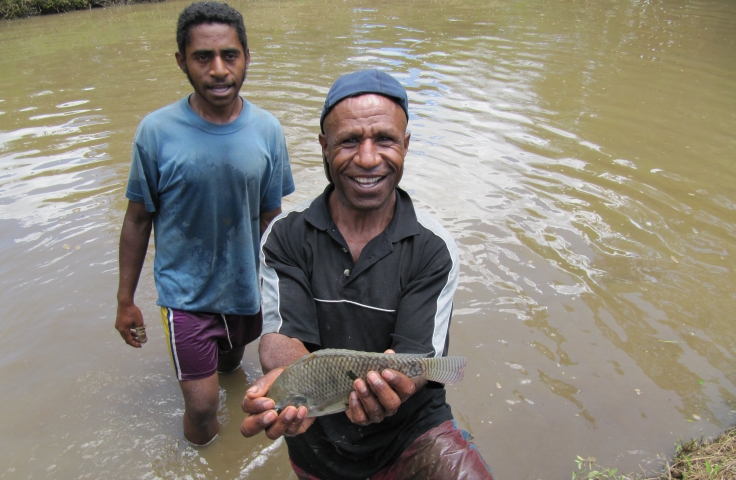Case Study 1: Treating Female Drug Users in Iran
Until 2007 there were no drug services for women in Iran, let alone services designed for female sex workers and prisoners. Following the success of a pilot clinic established by UNSW Professor Kate Dolan, seventeen years later there are now 20 similar drug treatment clinics across the country, providing services to more than 6,000 women.
Case Study 2: Improving Conditions for Sex Workers in Fiji
Professor Heather Worth and Dr Karen McMillan have been collecting evidence that gives sex workers in Fiji information to advocate for their own rights for over a decade. Their flagship publications have helped to shift public and policy maker perceptions about sex work and have illustrated how ‘bad law’ can increase the risk of violence and HIV transmission in this group.
Case Study 3: Expanded Aquaculture Improves Nutrition, Livelihoods, and Social Cohesion in Papua New Guinea
Research into improved aquaculture methods, combined with sustained community outreach activities, has supported the dramatic expansion of fish farming in Papua New Guinea. Over the past decade the number of fishponds has grown from an estimated 7,000 to over 60,000. In turn, fish farming has contributed to substantial improvements in household nutrition, income generation, and social cohesion.
Case Study 4: Point-of-care HPV ‘Test and Treat’ for Cervical Screening in Papua New Guinea and Other High-burden Settings
Through the application of a new point-of-care HPV test and treat strategy, cervical cancer incidence and mortality in Papua New Guinea can be halved if 70% of women aged 30-59 years were screened just twice in their lifetime. In the last 10 years, Professor Andrew Vallely and his team at the PNG Institute of Medical Research have established a new international collaborative research program in Papua New Guinea and led the search for new cervical screening strategies in low- and middle-income countries.
Case Study 5: Farmers as Filmmakers: Participatory Video for Postharvest Needs Analysis in Sierra Leone
Farmers in the Sierra Leone’s rural North-Western Province need to increase knowledge of and capacity for proper post- harvest handling and processing methods, which affects returns on their work. Dr. Alec Thornton and his research partners at Sierra Leone Agricultural Research Institute and Fourah Bay College (University of Sierra Leone) conducted a scoping study using video as a key method in a participatory rural appraisal in the Kambia District. The goal was to determine the technology and training needs of rural rice farmers to reduce post-harvest losses and improve rice quality.
Case Study 6: Recognising Indigenous Intellectual Property
Access and Benefit-Sharing (ABS) is a legally recognised system that seeks to ensure benefits from research on Indigenous knowledge of genetic material is shared. Professor Daniel Robinson manages an ABS Capacity Development Initiative (ABS Initiative) in the Pacific region. The project implements the Nagoya Protocol to the Convention on Biological Diversity, which seeks to ensure fair and equitable benefit-sharing arising from the use of biological resources and Indigenous/traditional knowledge for research and development purposes.
